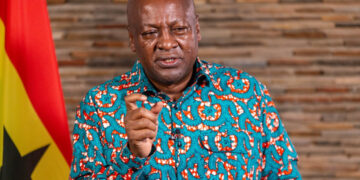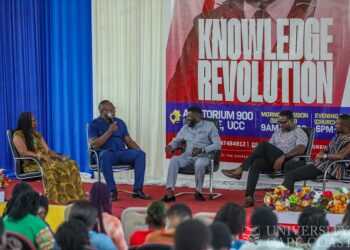Esther Smith speaks out against OFM Computer World’s alleged abuse, asserting that the company has unapproved control over her digital platforms and music rights.
The renowned Ghanaian gospel singer Esther Smith has publicly responded to accusations of digital fraud and control over her online platforms and music rights made by OFM Computer World and its CEO, Dr. Debrich Jeremiah Acheampong.
Esther Smith voiced concerns in a statement about the acts of OFM Computer World and its affiliate, Debrich Consultancy, which led to unauthorized control over her digital channels, such as her YouTube channel and official website.
She claimed that she did not fully benefit from the digital release of her songs and that her music distribution accounts were mismanaged, resulting in financial losses.
“I was not informed or consulted about changes made to my official platforms. Upon further investigation, I discovered discrepancies regarding ownership and royalty payments for my music, Smith stated.“
She went on to say that she had been deceived about the promotional activities carried out on her behalf and that payments for some services were not adequately justified.
ICYMT: Mahama Accuses Akufo-Addo Gov’t of Economic Mismanagement
Smith’s worries have struck a chord with other musicians, some of whom have voiced similar complaints about how their digital property is handled. More openness in digital partnerships is currently being demanded by a large number of industry professionals.
Dr. Debrich Jeremiah Acheampong of OFM Computer World responded to these claims by stating that, as part of a strategic collaboration, the company had signed a contract with Esther Smith in 2020 to handle her YouTube channel and other digital platforms.
He explained that, in his opinion, the agreement was violated when the YouTube channel’s login information was changed, interfering with the business’s account administration. Dr. Acheampong emphasized how crucial it is to uphold contractual obligations and make sure digital assets are handled in accordance with established guidelines.
The circumstance has spurred more extensive conversations in the music industry around content ownership, digital rights, and the necessity of transparent and unambiguous contracts between artists and digital management companies.
Both parties are sticking to their positions while the issue develops, which leaves space for further clarification or a court ruling.
SOURCE: PULSE GHANA




























